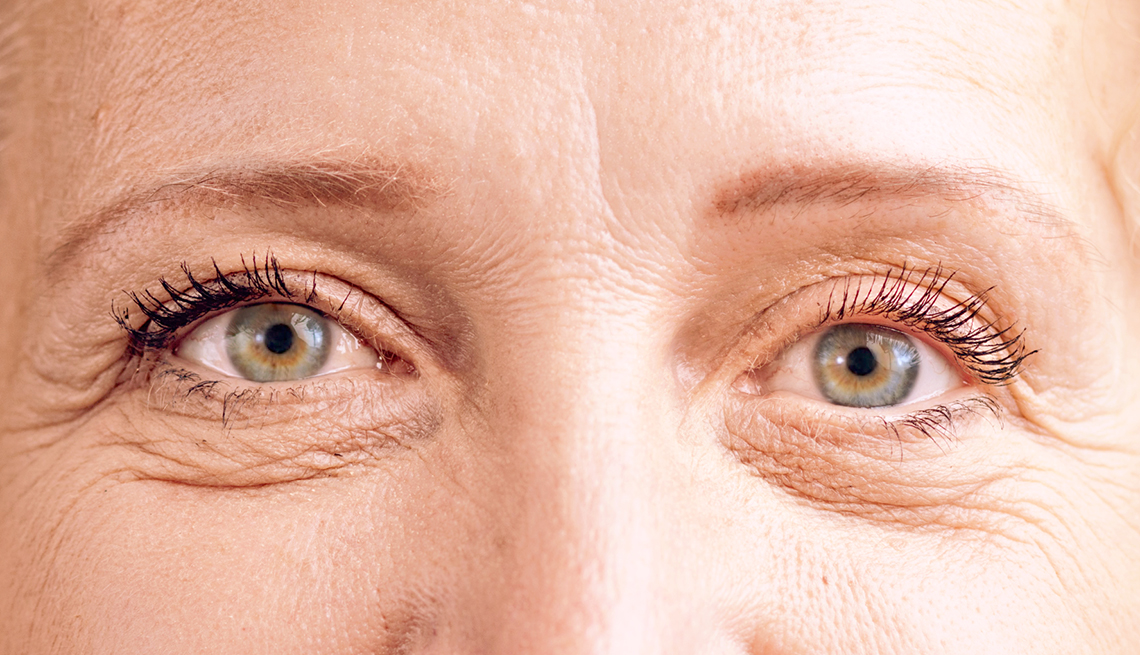All Categories
Featured
Persistent eye problems, such as glaucoma, macular degeneration, and diabetic person retinopathy, call for recurring like protect vision and preserve lifestyle. Effective management of these conditions involves a mix of clinical therapy, way of life changes, and regular tracking. Below's just how clients can organize their eye health and take care of chronic eye problems efficiently.
One of the most essential steps in managing chronic eye conditions is adhering to your physician's recommendations. This consists of:
![]()
Using prescribed medicines: Take eye decreases, oral medicines, or injections as guided to manage symptoms or sluggish illness progression.
Participating in normal examinations: Constant check outs to an eye treatment specialist permit for prompt modifications to your treatment strategy and very early discovery of changes in your condition.
Going through necessary procedures: Some problems, like glaucoma or retinal problems, may require surgical or laser interventions to stop additional damages.
Your general wellness dramatically affects your eye wellness. Embracing a healthy and balanced way of life can minimize the danger of problems and boost results.
Consume a well balanced diet regimen: Nutrient-rich foods, such as leafy greens, fish high in omega-3 fats, and fruits, can sustain eye health and wellness.
Workout on a regular basis: Physical activity enhances blood circulation, which profits the eyes by ensuring they receive appropriate oxygen and nutrients.
Manage chronic problems: If you have diabetics issues, high blood pressure, or other systemic conditions, keep them in control to stop worsening eye problems.
Prevent smoking cigarettes: Cigarette smoking boosts the risk of developing or intensifying chronic eye problems, consisting of macular degeneration and cataracts.
![]()
Stopping further damage to your eyes is vital in handling persistent conditions:
Use safety eyewear: Usage sunglasses with UV defense to protect your eyes from hazardous rays and decrease the threat of difficulties.
Restriction screen time: Excessive display direct exposure can stress your eyes. Practice the 20-20-20 regulation-- consider something 20 feet away for 20 seconds every 20 mins.
Keep proper illumination: Stay clear of straining your eyes by making sure appropriate illumination when working or reading.
Recognizing your problem empowers you to make informed decisions concerning your care. Ask your eye care supplier regarding:
The development and possible end results of your condition.
Symptoms and signs that require immediate attention.
Readily available sources, such as assistance teams and educational products.
![]()
Dealing with a chronic eye problem can be psychologically challenging. Think About:
Signing up with support system: Sharing experiences with others in comparable situations can give convenience and useful tips.
Talking to a counselor: Professional advice can aid you deal with the emotional effect of vision changes.
Conclusion
Taking care of persistent eye problems requires a proactive and detailed approach. By complying with clinical guidance, taking on a healthy lifestyle, securing your eyes, and looking for assistance, you can efficiently navigate the difficulties of these conditions and protect your vision. Normal interaction with your eye treatment service provider is necessary to ensure your monitoring plan stays effective and tailored to your demands.
- Follow Medical Guidance and Therapy Strategies
One of the most essential steps in managing chronic eye conditions is adhering to your physician's recommendations. This consists of:

Using prescribed medicines: Take eye decreases, oral medicines, or injections as guided to manage symptoms or sluggish illness progression.
Participating in normal examinations: Constant check outs to an eye treatment specialist permit for prompt modifications to your treatment strategy and very early discovery of changes in your condition.
Going through necessary procedures: Some problems, like glaucoma or retinal problems, may require surgical or laser interventions to stop additional damages.
- Keep a Healthy Way Of Living
Your general wellness dramatically affects your eye wellness. Embracing a healthy and balanced way of life can minimize the danger of problems and boost results.
Consume a well balanced diet regimen: Nutrient-rich foods, such as leafy greens, fish high in omega-3 fats, and fruits, can sustain eye health and wellness.
Workout on a regular basis: Physical activity enhances blood circulation, which profits the eyes by ensuring they receive appropriate oxygen and nutrients.
Manage chronic problems: If you have diabetics issues, high blood pressure, or other systemic conditions, keep them in control to stop worsening eye problems.
Prevent smoking cigarettes: Cigarette smoking boosts the risk of developing or intensifying chronic eye problems, consisting of macular degeneration and cataracts.
- Protect Your Eyes

Stopping further damage to your eyes is vital in handling persistent conditions:
Use safety eyewear: Usage sunglasses with UV defense to protect your eyes from hazardous rays and decrease the threat of difficulties.
Restriction screen time: Excessive display direct exposure can stress your eyes. Practice the 20-20-20 regulation-- consider something 20 feet away for 20 seconds every 20 mins.
Keep proper illumination: Stay clear of straining your eyes by making sure appropriate illumination when working or reading.
- Inform Yourself
Recognizing your problem empowers you to make informed decisions concerning your care. Ask your eye care supplier regarding:
The development and possible end results of your condition.
Symptoms and signs that require immediate attention.
Readily available sources, such as assistance teams and educational products.
- Look For Emotional Assistance

Dealing with a chronic eye problem can be psychologically challenging. Think About:
Signing up with support system: Sharing experiences with others in comparable situations can give convenience and useful tips.
Talking to a counselor: Professional advice can aid you deal with the emotional effect of vision changes.
Conclusion
Taking care of persistent eye problems requires a proactive and detailed approach. By complying with clinical guidance, taking on a healthy lifestyle, securing your eyes, and looking for assistance, you can efficiently navigate the difficulties of these conditions and protect your vision. Normal interaction with your eye treatment service provider is necessary to ensure your monitoring plan stays effective and tailored to your demands.
Latest Posts
How to Know When Your Car Needs Skilled Auto Repair at Montclare Auto Repair
Published May 24, 25
1 min read
Reputable Expenses Door Solutions for Homes and Companies
Published May 23, 25
1 min read
Discover Save Big on Car Maintenance with Montclare Auto Repair’s Limited-Time Deals
Published May 23, 25
1 min read
More
Latest Posts
How to Know When Your Car Needs Skilled Auto Repair at Montclare Auto Repair
Published May 24, 25
1 min read
Reputable Expenses Door Solutions for Homes and Companies
Published May 23, 25
1 min read
Discover Save Big on Car Maintenance with Montclare Auto Repair’s Limited-Time Deals
Published May 23, 25
1 min read